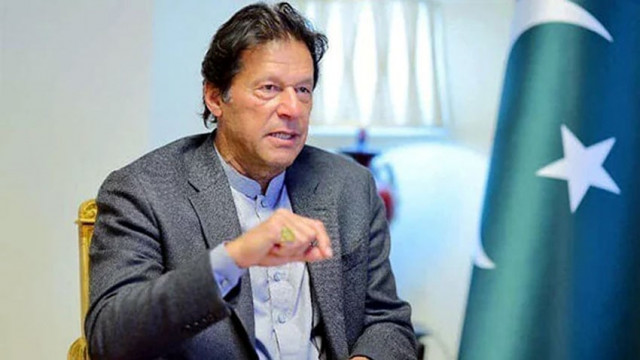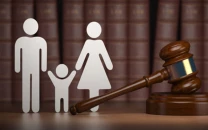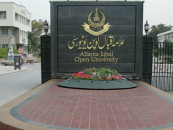NAB not under govt’s control: PM Imran
Imran Khan says anti-corruption watchdog also took notice against PTI’s ministers

Prime Minister Imran Khan on Wednesday reiterated that the National Accountability Bureau (NAB) was an independent institution and was not under the control of the government.
“NAB has also taken notices against our chief ministers and ministers,” the premier said, while chairing a parliamentary meeting of the Pakistan Tehreek-e-Insaf (PTI) and its coalition parties at the Parliament House.
Commenting on the Financial Action Task Force (FATF) related bill, PM Imran noted that the opposition was not favouring the law as they wanted to protect the “corruption” of their leaders.
He stressed that the passage of law regarding the FATF was a matter of national and economic survival for the country.
Ruling party’s MNA Noor Alam Khan said that whenever they issued a statement, the anti-corruption watchdog sent them a notice.
The prime minister observed that the NAB was an autonomous body and was not controlled by the government.
The members of parliament complained to the premier that the federal ministers did not have time to listen to the issues of the people.
The premier observed that he was aware of the problems faced by the public and added the government would take measures for their solution on priority basis.
He further said that the government was introducing a new energy policy which would resolve the power and gas issues of the masses.
Meanwhile, the premier vowed to pursue the Lahore motorway gang-rape case to its conclusion and ensure punishment for the culprits according to the law.
The Lahore motorway gang-rape case had caused national outrage after a mother of two was robbed and sexually assaulted by two armed men in front of her children.
A meeting was presided over by the prime minister in Lahore regarding the law and order situation in Punjab, availability and prices of essential goods and commodities, and welfare projects.
The premier expressed grave concerns regarding incidents of rape involving children and women. During the meeting, he was also apprised about progress in the case.
The forum also discussed and deliberated on the introduction of one emergency services number throughout the country as well as the establishment of a central database of crimes.
He ordered a strict crackdown against drug sellers and land-grabbing mafia and directed the provincial administration to ensure the availability of essential commodities, especially wheat.
The premier also directed the authorities concerned to establish more panagahs (shelter homes) and langar khanas (soup kitchens) as per the requirement.
"Provision of facilities of justice, education and health, empowering people at the local level and giving them representation could ensure better governance and public service," he said.
On September 14, days after Lahore-Sialkot motorway gang-rape incident which shook the collective conscience of the entire nation, PM Imran suggested chemical castration of sex offenders to prevent them from committing the same crime in the future.
“I personally think pedophiles and rapists must be hanged publicly but I am told that we have international repercussions. EU's GSP status for trade with Pakistan will be affected by public hangings.
Hence, I think chemical castration must be conducted on those criminals," he said during an interview with a private TV channel.
"Abid Ali, the main culprit in motorway incident, was caught in gang rape case back in 2013. Had he been given strict punishment, this [motorway] incident would not have happened. Hence it is needed that we chemically castrate them and maintain registries of such criminals," he maintained.



















COMMENTS
Comments are moderated and generally will be posted if they are on-topic and not abusive.
For more information, please see our Comments FAQ